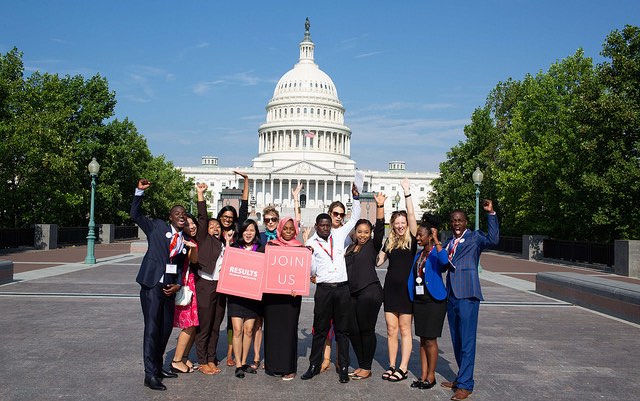One in a series of guest blog posts from leading voices in global development on achieving long-term sustainability and growth while ending hunger, poverty, and malnutrition.
Young people aged 10-24 comprise over 25 percent of the world’s population. Imagine the difference it would make if the potential of these 1.8 billion individuals were channeled to advance different causes. Imagine they were given the opportunity to work with and learn from adults with more experience and expertise, or with organizations with the necessary resources. It is important that these young people are mobilized and empowered to take action because 100 percent of our world’s future lies in their hands.
Rose Jade Eugenie Delgado
Hunger and malnutrition are urgent challenges that the world’s youth must confront. As a youth advocate, I believe one of the necessary steps to increase participation is to provide a platform for young people to share their ideas and where, in turn, they can receive guidance.
In 2018, 13 of us young people from around the world were given the amazing opportunity to become Global Youth Leaders for Nutrition, a program sponsored by the Scaling Up Nutrition (SUN) Civil Society Network, RESULTS Canada, ACTION, and Global Citizen. Since then, we have made great progress in our respective countries on putting our advocacy plans into action on a range of nutrition-related issues.
My fellow youth leader Bormei from Cambodia has launched the “We Project,” providing a safe space for young people to talk about malnutrition. Anayat from Canada has been doing nutrition campaigns with RESULTS where she was able to lobby with her local MP. A photo and dance exhibition, on the other hand, is Manata’s way of promoting good nutrition in Kyrgyzstan. In Kenya, Jane is partnering with schools to integrate learning about good nutrition into their curriculums. Hanitra from Madagascar is focusing her campaign on adolescent nutrition. Barsha from Nepal and Mike from Malawi are both lobbying to increase nutrition investment. Maryam from Nigeria is working with the media to shed light on the importance of nutrition for girls and young women. Florence, a medical student from Rwanda, is providing nutrition advice to local community members. Niroj is doing a sticker campaign with different forms of public transportation to spread awareness on nutrition in Sri Lanka. In Zambia, Maxwell has done sensitization and promotion of the first 1,000 days. Webster from Zimbabwe is working to increase awareness on the importance of breastfeeding. In my case, I’ve been lobbying the Sangguniang Kabataan—my local youth commission in the Philippines—to include nutrition in the local youth development plan.
These examples show that despite limited experience and resources, with drive, creativity, and vision for change, young people can and will find ways to make a big difference. With mentorship, skills sessions and peer support, these young people were able to put their ideas into action, scale them up, and implement more effective advocacy work.
At the recent IFPRI-FAO Accelerating the End of Hunger and Malnutrition Conference in Bangkok, I was given the amazing opportunity to be Youth Correspondent. I interviewed nutrition champions from different organizations, asking questions related to youth involvement in fighting hunger and malnutrition.
During my stint as correspondent, I realized two things: One, that some organizations have already established means to engage and involve young people. For example, some have youth representatives on their governing committees in order to include the younger generation’s take on their programs and projects. Two, although some do not currently have youth involvement mechanisms in place, they are either looking into it or in the process of establishing one. Unanimously, the people I’ve interviewed agree that young people could be prime movers and are crucial assets in efforts to accelerate action to end global hunger and malnutrition.
Using social media to educate the public on the importance of food issues and nutrition is one way young people can get involved. They can bring fresh and creative ideas to amp up existing food and nutrition campaigns in ways that would appeal most effectively to their generation, bringing more people into this important conversation—and spurring them to action.
Support youth leadership. Allow youth to have a voice. When we invest in young people, everyone benefits. Empower them, and a new generation will help to end hunger and malnutrition once and for all.
Rose Jade Eugenie Delgado is a Global Youth Leader for Nutrition from the Philippines.







